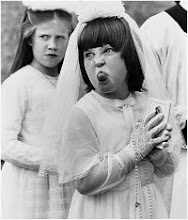An Attack Against Religious Freedom by the Courts of Our Land?
An appellate court recently ruled against religious liberty
against a Colorado baker who refused to make a wedding cake for a gay couple.
He was willing to make anything for him but a wedding cake. He was relying on
his constitutionally protected religious right to follow his Judeo-Christian
values without interference from the government. Instead of protecting his constitutionally
protected religious right protected under the first amendment, the Colorado
Court of Appeals violated his religious rights by ruling against him in using a
Colorado Anti-Discrimination Act; the courts claiming that he violated the
discrimination act in refusing to bake the gay couple’s wedding cake. Such an
act can lead to further discrimination against other gay couples seeking
services to their same-sex marriage ceremonies.
The Colorado baker insisted that he did not discriminate by
offering other items he had to sell. Because of religious conviction, he
refused to participate in an unholy union between couples by selling a wedding
cake for their ceremony. The baker argued that his opposition to same-sex
marriage as something against his faith was not an act against their individual
sexual orientation, but an act against same-sex marriage on grounds of
religious conviction.
Colorado law prohibits places of public accommodation from
refusing to serve people based on sexual orientation. By refusing to bake a
wedding cake for the same-sex marriage ceremony, Colorado found the Colorado
baker in violation of the law. The appellate court finds that same-sex marriage
is closely related to sexual orientation and thus by violating one, is
violating the other. By offering anything to sell but the wedding cake, the
Colorado baker argued he is innocent from any discrimination based on sexual
orientation. Furthermore, he believed that he was protected under the first
amendment to follow his religious conviction defined by Judeo-Christian values.
The Civil Rights Act of 1964 passed and enacted into law to
protect people from discrimination regarding race, color, religion, sex, or
national origin. In addition to that, the state of Colorado in 2014 passed a marriage
equality act which ensures by state law the right for gay marriage. To ensure
protection for gay couples from discrimination, the first amendment protection
that people of faith enjoyed for many years are now threatened and their
Constitutional rights threatened. The recent finding in Colorado’s court of
appeal seems to protect same-sex marriage rights from being discriminated, but
failing to protect “people’s of faith” Constitutional rights in allowing them
to follow their religious convictions. By ruling against the Colorado baker,
the courts are discriminating against fundamental freedoms protected under the
first amendment and forcing individuals to adopt the government’s view; thus,
the state forcing itself against protection of religious rights which in turn,
is against Separation of Church and State.
The recent ruling of the Colorado appellate court is a
statement that they recognize “man’s law trumps God’s law” which is in direct
violation of the first amendment of the Constitution of the United States and
established laws of certain churches such as The Code of Canon Law of the
Catholic Church; which is recognized in the United States legal system as a
legal document of authority for the peoples of the Catholic faith. In the Code of Canon Law: Can. 22 “Civil laws to which the law of
the Church yields are to be observed in canon law with the same effects,
insofar as they are not contrary to divine law and unless canon law provides
otherwise.” According to Colorado appellate court, man’s law (natural
law) trumps Divine law; religious convictions dictated by ones’ religious
faith, as it trumps Constitutional law set forth by the Congress of the United
States.
We hope and pray
that this unlawful discriminatory case against religious freedom is taken
up by a higher court and overturned. But whether this case is taken up or not
by a higher court, this issue will have to be taken up and defined by the
Supreme Court under the banner of religious freedom. Not only the Colorado
baker’s Constitutional freedom were discriminated against, but others, as they
are targeted by gay couples using same-sex ceremonies to silence and legally
nullify the opposition. Other parts of the country, people who refused to
photograph, bake cakes, arrange and sell flowers, and provide other services
towards servicing same-sex marriage ceremonies, are being discriminated
against. The higher courts will have to face this discrimination against religious freedoms that are
currently protected under the first amendment. The courts will have to face ruling to uphold
the first amendment guaranteed by the Constitution, or rule against
Constitutional freedom by ruling in favor of natural law “trumping” divine law;
man’s law (civil law) legally superior to God’s law.
If the Supreme Court rule in favor
of man’s law being superior to divine law, the Constitutionally protected first
amendment will be nullified and almost anything goes in regulating action or
speech regarding the protection of same-sex relationships, same-sex marriages,
and other avenues relating to homosexuality while anything defined as divine
law would not be legally recognized.
God have mercy on this country;
pray for America. Pray for conversions.

